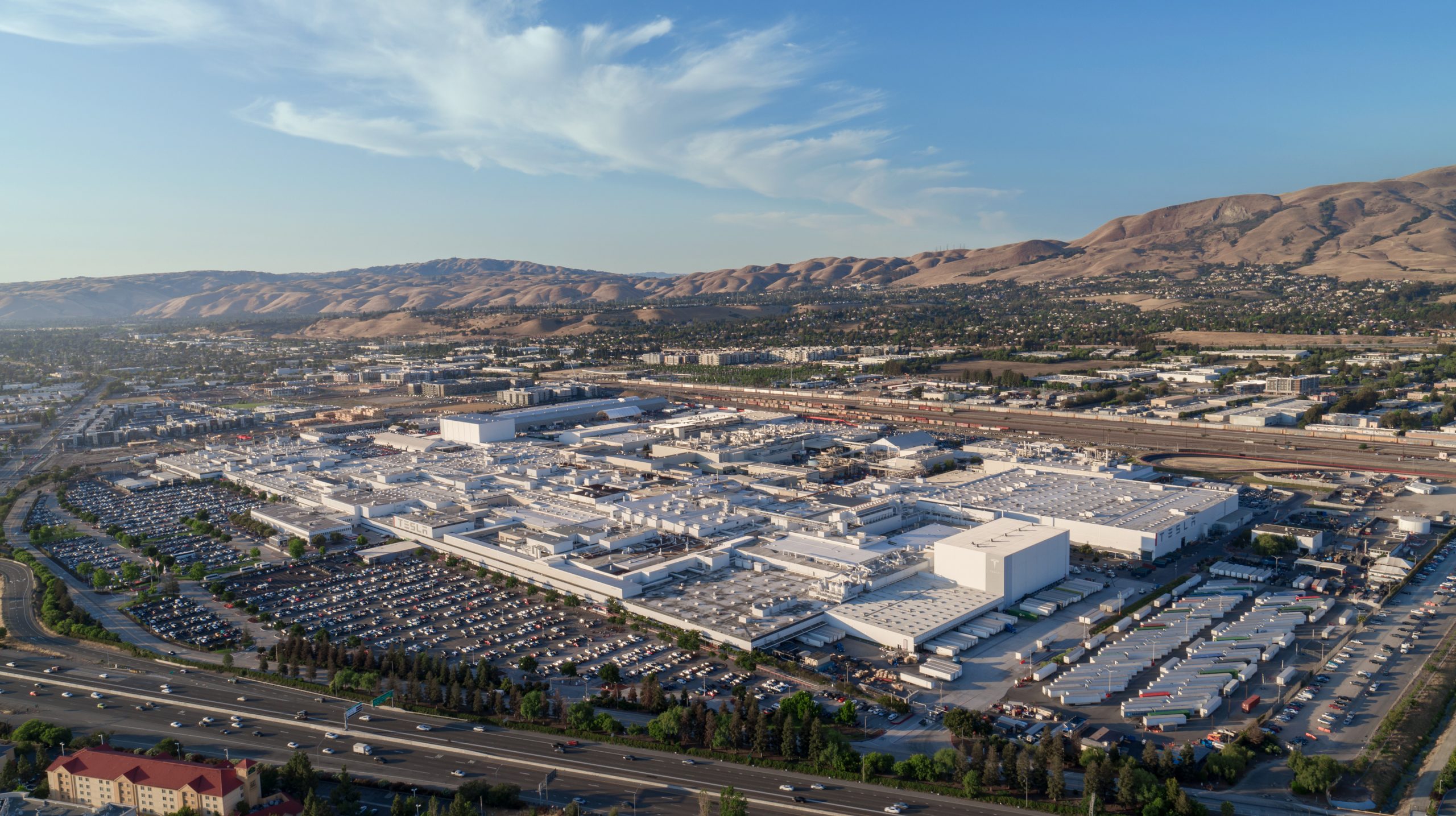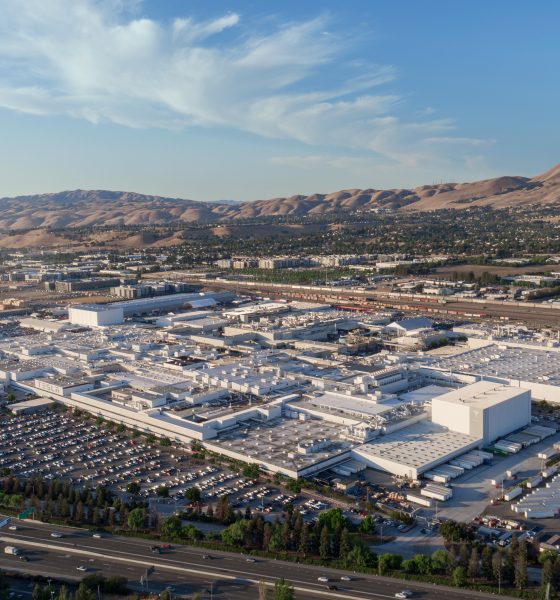Tesla faces a new lawsuit alleging severe harassment of Black employees at its Fremont, California factory, as filed by a federal civil rights agency this week.
On Thursday, the U.S. Equal Employment Opportunity Commission (EEOC) filed a lawsuit against Tesla in federal court, claiming that, since 2015, the company’s Black workers have been subject to racist slurs and graffiti, including images of swastikas and nooses, according to a report from Reuters.
The suit is just the latest in allegations of racial discrimination at the automaker’s Fremont, California factory, and it comes just over a week after another lawsuit claiming toxic work environments at Tesla’s factories was dismissed.
According to this week’s lawsuit, Tesla hasn’t investigated the claims of racist conduct since the EEOC first raised them, and it also claims that the automaker has fired some employees who reported cases of harassment. Tesla has said in the past that it doesn’t tolerate any racial discrimination, adding that it takes complaints from its workers very seriously.
The lawsuit comes after it was found that the EEOC was investigating Tesla last year, with the agency saying that it discovered “reasonable cause” to believe the automaker went against federal discrimination laws. The EEOC then tried to enter into a settlement with Tesla, though discussions to settle reportedly failed. Investigations began when EEOC chair Charlotte Burrows filed an internal complaint with the commission, considered a charge against Tesla.
“Every employee deserves to have their civil rights respected, and no worker should endure the kind of shameful racial bigotry our investigation revealed,” Burrows said.
Reuters notes that the EEOC typically settles lawsuits directly with employers, adding that it’s somewhat uncommon for the agency’s cases to make it to trial.
The suit also represents the first set of federal charges brought against Tesla for allegations of racial discrimination, with similar lawsuits previously arising from the state of California and past employees. Stephen Diamond, a Santa Clara University law professor who has previously advised Tesla investors on social responsibility, notes that the escalation to the federal level could make it harder for the automaker to defend itself against allegations of discrimination.
“If the federal government gets involved, it certainly adds credibility to the claims,” Diamond said. “Major institutional investors like pension funds will be very concerned about this type of behavior.”
The lawsuit is seeking to make Tesla pay compensation and punitive damages to an unspecified number of its Black workers at the Fremont location, and it would also force the automaker to improve policies related to discrimination and retaliation.
Tesla also faces a racial discrimination case from the California Civil Rights Department (DCR), which is considered a counterpart of the EEOC’s on the state level. That particular suit alleges that Tesla discriminated against Black workers in decisions about wages, promotions and general work assignments. Tesla requested that the DCR dismiss the case last year, saying it was politically motivated, though a judge denied the request.
In addition, a former Black contract elevator operator at the Fremont factory, Owen Diaz, is now seeking his third trial with Tesla from a 2017 lawsuit alleging racial discrimination. In the suit, Diaz said he was told to “go back to Africa” and was called the N-word without any action taken by the automaker despite his repeated complaints. A jury awarded Diaz $3.2 million in April after he rejected a separate payout in 2021 that the judge had reduced from $137 million to $15 million.
Tesla is also facing a class-action lawsuit from around 240 employees in California, claiming that the company mistreated Black workers at the Fremont factory.
Former Tesla employee looks to add almost 240 plaintiffs in racism lawsuit
What are your thoughts? Let me know at zach@teslarati.com, find me on X at @zacharyvisconti, or send your tips to us at tips@teslarati.com.

Elon Musk
SpaceX secures FAA approval for 44 annual Starship launches in Florida
The FAA’s environmental review covers up to 44 launches annually, along with 44 Super Heavy booster landings and 44 upper-stage landings.
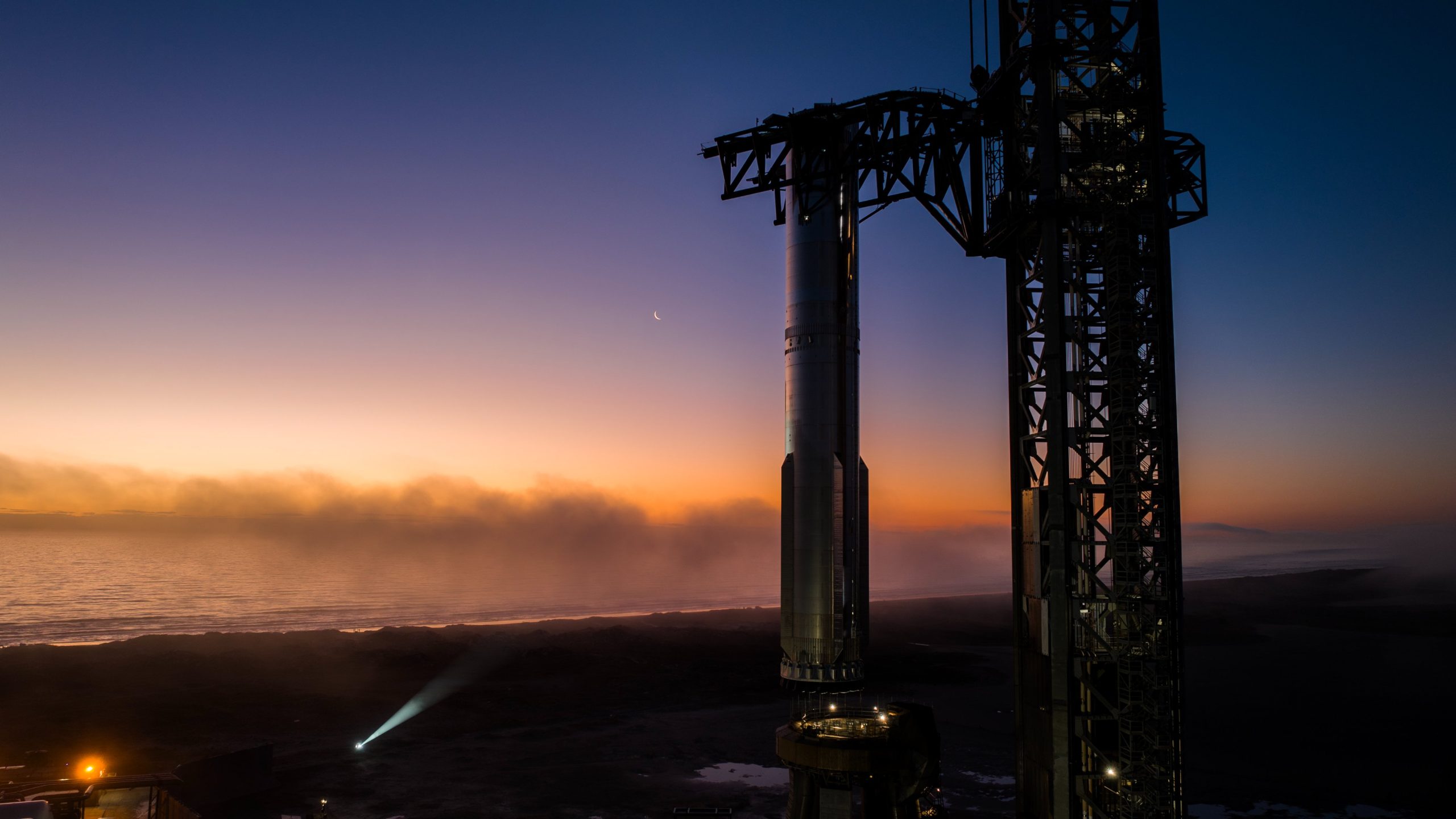
SpaceX has received environmental approval from the Federal Aviation Administration (FAA) to conduct up to 44 Starship-Super Heavy launches per year from Kennedy Space Center Launch Complex 39A in Florida.
The decision allows the company to proceed with plans tied to its next-generation launch system and future satellite deployments.
The FAA’s environmental review covers up to 44 launches annually, along with 44 Super Heavy booster landings and 44 upper-stage landings. The approval concludes the agency’s public comment period and outlines required mitigation measures related to noise, emissions, wildlife, and airspace management.
Construction of Starship infrastructure at Launch Complex 39A is nearing completion. The site, previously used for Apollo and space shuttle missions, is transitioning to support Starship operations, as noted in a Florida Today report.
If fully deployed across Kennedy Space Center and nearby Cape Canaveral Space Force Station, Starship activity on the Space Coast could exceed 120 launches annually, excluding tests. Separately, the U.S. Air Force has authorized repurposing Space Launch Complex 37 for potential additional Starship activity, pending further FAA airspace analysis.
The approval supports SpaceX’s long-term strategy, which includes deploying a large constellation of satellites intended to power space-based artificial intelligence data infrastructure. The company has previously indicated that expanded Starship capacity will be central to that effort.
The FAA review identified likely impacts from increased noise, nitrogen oxide emissions, and temporary airspace closures. Commercial flights may experience periodic delays during launch windows. The agency, however, determined these effects would be intermittent and manageable through scheduling, public notification, and worker safety protocols.
Wildlife protections are required under the approval, Florida Today noted. These include lighting controls to protect sea turtles, seasonal monitoring of scrub jays and beach mice, and restrictions on offshore landings to avoid coral reefs and right whale critical habitat. Recovery vessels must also carry trained observers to prevent collisions with protected marine species.
Elon Musk
Texas township wants The Boring Company to build it a Loop system
The township’s board unanimously approved an application to The Boring Company’s “Tunnel Vision Challenge.”
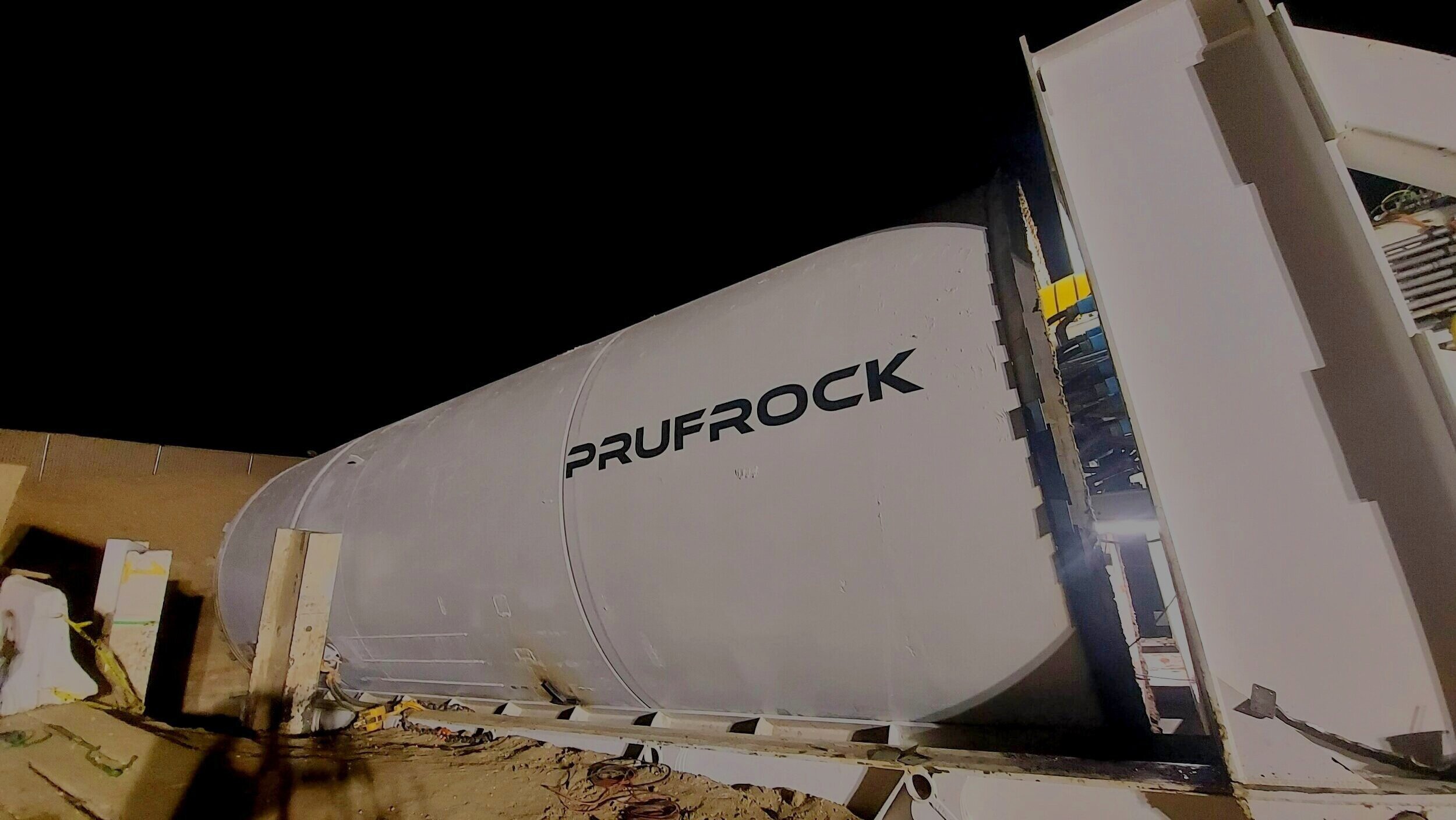
The Woodlands Township, Texas, has formally entered The Boring Company’s tunneling sweepstakes.
The township’s board unanimously approved an application to The Boring Company’s “Tunnel Vision Challenge,” which offers up to one mile of tunnel construction at no cost to a selected community.
The Woodlands’ proposal, dubbed “The Current,” features two parallel 12-foot-diameter tunnels beneath the Town Center corridor near The Waterway. Teslas would shuttle passengers between Waterway Square, Cynthia Woods Mitchell Pavilion, Town Green Park and nearby hotels during concerts and large-scale events, as noted in a Chron report.
Township officials framed the tunnel as a solution for the township’s traffic congestion issues. The Pavilion alone hosts more than 60 shows each year and can accommodate crowds of up to 16,500, often straining Lake Robbins Drive and surrounding intersections.
“We know we have traffic impacts and pedestrian movement challenges, especially in the Town Center area,” Chris Nunes, chief operating officer of The Woodlands Township, stated during the meeting.
“The Current” mirrors the Loop system operating beneath the Las Vegas Convention Center, where Tesla vehicles transport passengers through underground tunnels between venues and resorts.
The Boring Company issued its request for proposals (RFP) in mid-January, inviting cities and districts to pitch local uses for its tunneling technology. The Woodlands must submit its application by Feb. 23, though no timeline has been provided for when a winning community will be announced.
Nunes confirmed that the board has authorized a submission for “The Current’s” proposal, though he emphasized that the project is still in its preliminary stages.
“The Woodlands Township Board of Directors has authorized staff to submit an application to The Boring Company, which has issued an RFP for communities interested in leveraging their technology to address community challenges,” he said in a statement.
“The Board believes that an underground tunnel would provide a safe and efficient means to transport people to and from various high-use community amenities in our Town Center.”
News
Tesla Model Y wins 2026 Drive Car of the Year award in Australia
The Model Y is already Australia’s best-selling EV in 2025 and the tenth best-selling vehicle overall.
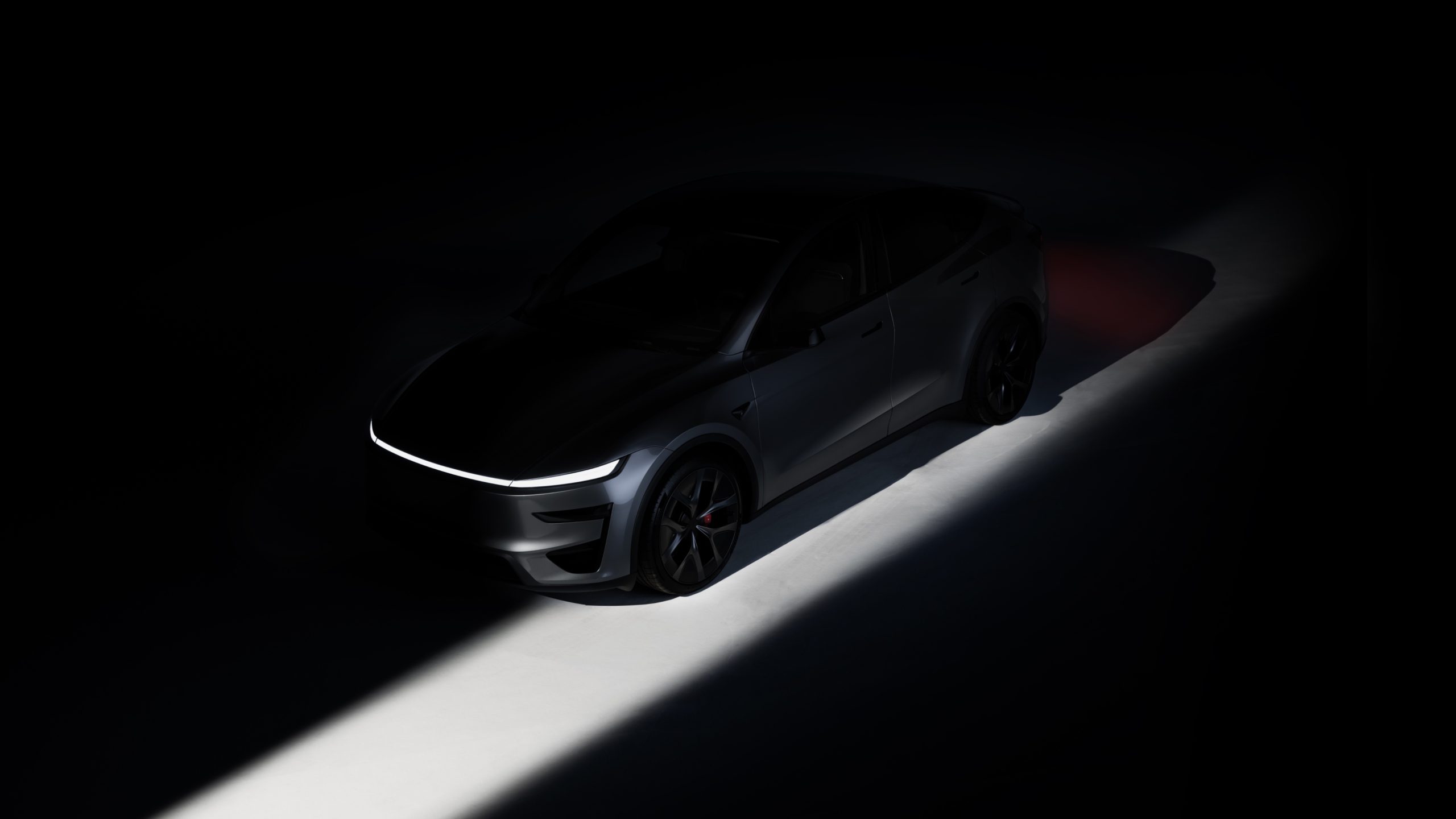
The Tesla Model Y has been named 2026 Drive Car of the Year overall winner, taking the top honor after being judged as the vehicle that “moves the game forward the most for Australian new car buyers.”
The Model Y is already Australia’s best-selling EV in 2025 and the tenth best-selling vehicle overall, but the vehicle’s Juniper update strengthened its case with new ownership benefits and expanded software capability.
Drive’s overall award compares category winners and looks at which model most significantly advances the local new car market. In 2026, judges pointed to the Model Y’s five-year warranty and the availability of Full Self-Driving (Supervised) as a monthly subscription as key differentiators.
Priced from AU$58,900 before on-road costs, the all-electric crossover SUV offers a lot of value compared to similarly sized petrol and hybrid rivals. The ability to access Tesla’s Supercharger network across Australia also reduces friction for buyers moving to EV ownership.
Owners can add FSD (Supervised) for AU$149 per month. While it still requires driver oversight, the system expands the vehicle’s advanced driver-assistance capabilities and reflects Tesla’s software-first approach.
“The default choice for a reason. The Tesla Model Y makes the transition to electric both effortless and rewarding,” Drive wrote.
The 2025 Model Y facelift also sharpened the vehicle’s exterior, highlighted by a distinctive rear light bar that gives the crossover SUV a more modern road presence.
Drive described the Model Y as a benchmark for combining practicality, efficiency and technology at an accessible price point. With eligibility for federal Fringe Benefit Tax exemptions through novated leasing, its value proposition has improved for numerous buyers.
For 2026, the Model Y’s combination of range efficiency, charging access and software capability proved decisive. Ultimately, the award all but cements the Model Y’s position as one of the most influential vehicles in Australia’s evolving new-car market today.
